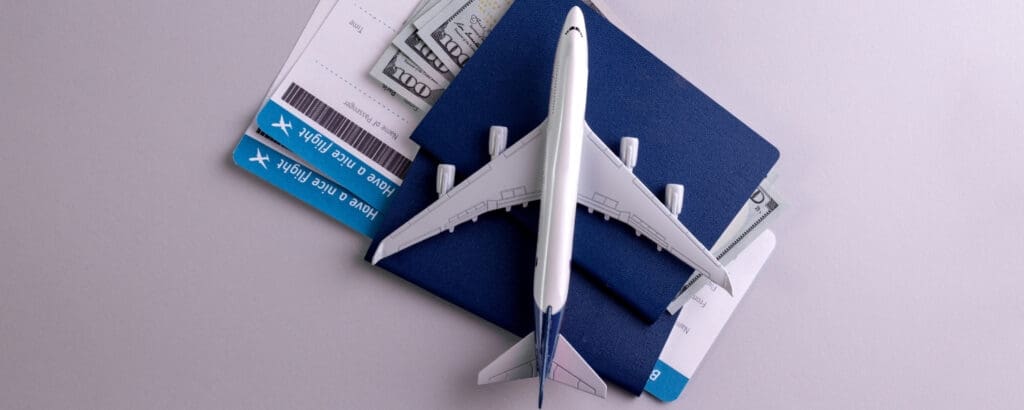The Truth About Third-Party Flight Bookings: A Quick Guide

When you’re searching for flights online, chances are you’ll see results from websites like Expedia, Kayak, Skyscanner, or Google Flights. They’re convenient, they show you dozens of options at once, and sometimes you’ll even spot what looks like an incredible deal.
But what does it actually mean to book a flight through a third party instead of directly with the airline? And what should you think about before hitting that “Book Now” button? Let’s break it down.
Who You’re Really Booking With

When you buy a ticket through a third-party site (sometimes called an OTA — Online Travel Agency), it may feel like you’re booking “with the airline,” but technically, you’re not. The third party becomes the official owner of your reservation. That means your booking sits in their system first, and the airline can only make changes by working through them.
This becomes most noticeable if something goes wrong — like a cancellation, delay, or schedule change. In many cases, the airline’s customer service team will tell you to contact the third party directly, since they’re the one who issued your ticket. That extra step can add time and complexity, especially if you need quick assistance.
On the other hand, when you book directly with the airline, they have full control of your reservation. That usually means changes can be handled faster, without going through a middleman.
The Trade-Offs of Booking Through a Third Party

Customer Support Differences
If your flight is disrupted, airlines often help passengers who booked directly first. If you booked through a third party, you may need to contact that company to make changes. That can sometimes mean longer wait times, since the third party has to liaise with the airline on your behalf
Booking direct = one point of contact (the airline).
Booking third-party = potentially two layers of customer service.
Flexibility & Fees
Airlines often offer more flexible rebooking options or credits when you book with them. For example, during travel disruptions, some carriers will waive change fees or allow same-day changes.
Third parties, however, may add their own policies and service fees on top of the airline’s rules. This means that even if the airline doesn’t charge you to change a ticket, the third party might. cents of value per point – a solid profit margin that makes the purchase worthwhile.
Points & Perks
If you’re part of a loyalty program like Aeroplan or WestJet Rewards, booking directly helps you maximize your benefits. Sometimes, third-party tickets don’t qualify for points, status credits, or upgrades.
Booking direct usually ensures you’re earning miles and getting the full value of your membership.
Price vs. Peace of Mind

One of the biggest reasons travellers turn to third-party sites is price. Sometimes, you’ll see fares that look noticeably cheaper than what the airline is offering directly. For certain trips, those savings can absolutely be worth it — especially if it’s a straightforward, one-way or roundtrip flight where you’re confident your plans won’t change.
But it’s important to weigh the trade-off. If the savings are small — say $30–$50 — it might not be worth the potential hassle of navigating slower customer service or stricter change policies down the road. That extra bit of peace of mind can be more valuable than a small discount.
On the other hand, if the difference is significant — a few hundred dollars or more — booking through a third party could make sense, as long as you’re comfortable with the reduced flexibility. Think of it as a personal calculation: how much is your time, flexibility, and convenience worth compared to the savings?
When Third Parties Can Work Well

There are times when booking through a third party makes sense:
- Package deals: Sometimes bundling flights with hotels or car rentals can save a significant amount of money. If you’re planning a full vacation, third-party sites often make it easy to book everything in one place, which can be more convenient than coordinating separately.
- Complex itineraries: If your trip involves multiple airlines or unusual connections that aren’t easily booked together, a third party can sometimes piece together options you might not find on a single airline’s website.
- Simple, non-changeable trips: If your plans are set in stone and you don’t anticipate needing to make changes, a third-party booking can be a straightforward way to secure a fare — especially if it’s noticeably cheaper than booking direct.
In short, third-party bookings can offer convenience and savings in certain scenarios — just make sure you understand the trade-offs before hitting “Book Now.”
Final Takeaway

Booking through a third party isn’t “bad” — it’s just a different way of doing things, and it comes with trade-offs. Think of it as choosing between convenience and control.
Use third-party sites to research flights, compare fares, and sometimes snag a deal — especially if the savings are significant. But when flexibility, loyalty points, or peace of mind are important, booking directly with the airline usually offers the smoothest experience.
At the end of the day, it’s about knowing what you’re giving up and making the choice that fits your trip, your priorities, and your comfort level. That way, you can fly smarter, not just cheaper.
Follow me on Instagram and Tiktok for travel tips hacks that’ll make your adventures unforgettable!
@thecanadianjetsetter on INSTAGRAM →
@thecanadianjetsetter on TIKTOK →
follow me ON Instagram →
FOLLOW me on tiktok →
Comments will load here
Be the first to comment